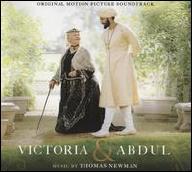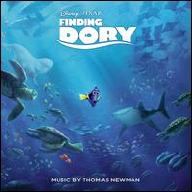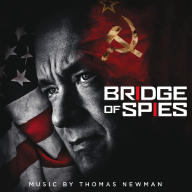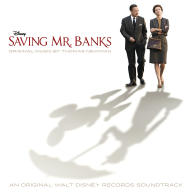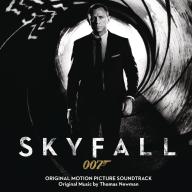Born in Los Angeles in 1955, Thomas Montgomery Newman is the son of Alfred Newman and the nephew of Lionel and Emil Newman, all three renowned composers and conductors from Hollywood's golden age. (Thomas' brother David also followed in the family business, as did their cousin, the sardonic singer/songwriter Randy Newman). After learning piano and violin as a child, he went on to attend the University of Southern California, where he studied composition and orchestration with David Raskin and Frederick Lesemann. Newman completed a master's degree in composition from Yale in 1978.
Although his early musical theater project Three Mean Fairy Tales was championed by Stephen Sondheim, Newman spent the better part of the late '70s playing keyboards in the rock band the Innocents and the improvisational combo Tokyo 77. In 1983, he broke into the film industry by orchestrating a John Williams cue from Return of the Jedi, composing his first full score, Reckless, the following year.
The score to his fourth film, the 1985 Madonna vehicle Desperately Seeking Susan, proved to be his breakthrough, and Newman further honed an electro-orchestral approach on subsequent projects including 1987's The Lost Boys and Less Than Zero. Films such as Fried Green Tomatoes (1991), The Player (1992), and Scent of a Woman (1992) followed before Newman earned a pair of Oscar nominations for his work on 1994's The Shawshank Redemption and Little Women. A year later, he received another nomination for Unstrung Heroes.
Newman's fourth Oscar bid arrived with 1999's American Beauty. Notable for its new-agey ambience and tonal percussion, the then-unconventional soundtrack album went on to win the Grammy Award for Best Score. Newman received further Academy Award nominations in successive years for his work on Road to Perdition (2002), Finding Nemo (2003), and Lemony Snicket's A Series of Unfortunate Events (2004). Another two Grammys resulted for his Emmy-winning theme for the television series Six Feet Under, in the fields of Best Instrumental Composition and Best Instrumental Arrangement. His eighth Oscar nomination arrived with The Good German (2006), which was followed by nominations for WALL-E (2008), Skyfall (2012), and Saving Mr. Banks (2013). WALL-E resulted in an additional nomination for "Down to Earth," a collaboration with Peter Gabriel that became Newman's first appearance in the song category. Though the Oscar remained elusive, he won two more Grammys for WALL-E and Skyfall.
Newman continued to delivery notable scores for other critically acclaimed films, including the documentary He Named Me Malala, Steven Spielberg's Bridge of Spies (another Oscar nominee), and a second James Bond installment, Spectre, all from 2015. The composer then returned to Disney-Pixar for the sequel to Finding Nemo, 2016's Finding Dory. That same year, he provided the music for the space drama Passengers, whose experimental electronics helped earn him his 14th Oscar nomination. Newman's music for the biopic Tolkien and Mendes' 1917 both hit theaters in 2019; 1917 notched him another Academy Award nomination, while the Emmys recognized his theme to the Stephen King series Castle Rock with a nomination of their own.
To begin the next decade, Newman composed the jazzy music for 2020's Let Them All Talk, then shifted to the crime thriller The Little Things (2021) and World War II drama Operation Mincemeat (2021). His output in 2022 included actor Channing Tatum's directorial debut, Dog, and the Mendes romance Empire of Light. ~ Jason Ankeny & Marcy Donelson, Rovi


